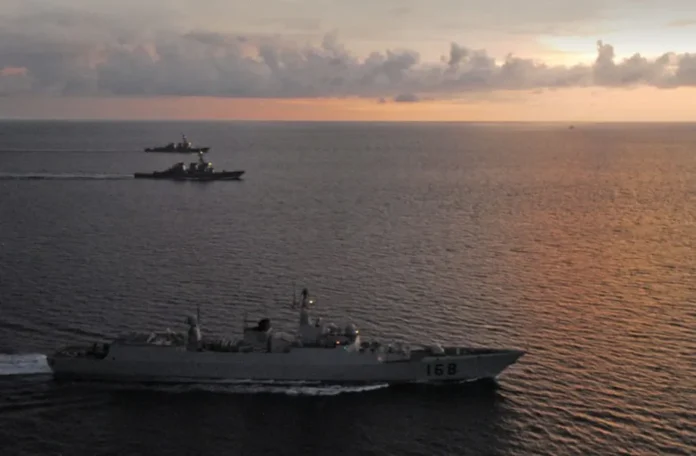Author: Jerry Hendrix (retired US Navy captain)
Affiliation: Telemus Group
Organization/Publisher: Foreign Policy
Date/Place: October 10, 2021/ USA
Type of Literature: Article
Word Count: 2365
Link: https://foreignpolicy.com/2021/10/10/us-navy-sea-power-china-decline-military-strategy/
Keywords: Seapower, History Lessons, Quantity and Quality of Navel Fleet, US, China, the Rise and Decline of Great Powers
Brief:
Seapower is the determinant factor that makes great powers, and the rise and decline of these powers throughout history are directly related to the size and spread of naval fleets, as the author (a retired US Navy captain) argues in this article. Therefore, a superpower that wants to maintain its global supremacy must not only ensure the quality/modernity of its naval fleet compared to its competitors but must also maintain its quantitative edge on the high seas. The article aims to warn Washington against falling into the mistake of reducing the size of its maritime forces under the pretext of modernizing and taking advantage of the reduction funds in order to achieve a qualitative advantage over its rivals, as indicated by the current “Divest to Invest” strategy, especially at a time when China is expanding its naval presence in a way that will put it at the forefront of the world in the foreseeable future. The author argues that Washington’s adoption of such a strategy—at a time when officials are almost unanimous about the Chinese “threat”—reflects US strategic confusion, as well as an absence of a clear vision of history. The author devotes the first half of his article to arguing about the importance of the quantitative factor, i.e. the size of merchant and naval fleets, in the rise of the great powers and their decline when ignored. He presents numerous historical examples from ancient Athens to Great Britain, emphasizing the latter as being the closest example to the US today. Thanks to its Royal Navy, Britain created an “empire upon which ‘the sun never set’.” On the other side, “most historians view the 14-month world cruise of new U.S. battleships (Roosevelt’s Great White Fleet) as the birth of what would come to be known as the American Century.” Britain’s decline began when its political officials decided to abandon many ships and stop manufacturing others, in order to modernize the fleet to confront the German enemy. “The British Colonial and Foreign Offices instantly recognized that they would no longer be able to call on readily available Royal Navy ships to support the nation’s diplomatic interests.” This process led to the destabilization of the international environment and the launch of a global naval arms race in which Britain found itself on the same starting line with the other competing powers in building modern fleets, after it had maintained the “two-power standard” as a source of predominance whereby the size of the Royal Navy had to meet or exceed the next two navies combined. Thus, Britain found itself compelled to abandon its colonial interests in several regions of the world in order to focus on what had been perceived as the German threat in the neighborhood. So, it lost the appearance of its global power and turned into a mere regional maritime power on the periphery of Europe. In the second part of the article, the author urges the US to benefit from the lessons of history and calls for stopping the strategy of reducing the American naval power, which has been in place since the end of the Cold War, under the pretext of modernizing the fleet. This strategy would produce a very small naval fleet incapable of protecting US global interests or winning wars. The downsizing has reduced the US Navy to just 294 ships. Not even a 355-ship fleet (the number suggested by the Obama administration in its final days) would be enough to re-establish conventional deterrence on the high seas. The United States should seek a fleet of 456 ships that balances quantity and quality. Moreover, the author calls on Congress to allocate sufficient funds to achieve such a goal in the long term, especially as the US Navy is hedging today against China. He also suggests other measures that would prevent the United States from falling into Britain’s historical mistake, while Beijing is seeking to bypass Washington and take center stage in the world. “The United States must recognize yet again that on the world’s oceans, quantity has a quality all its own.”
By: Djallel Khechib, CIGA Senior Research Associate




